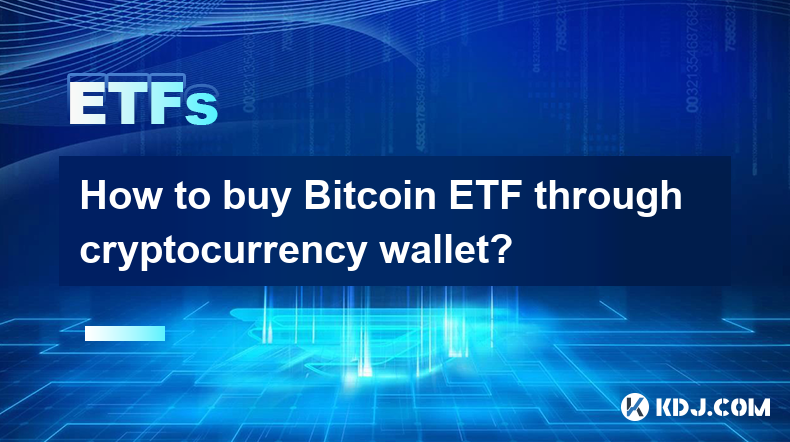-
 Bitcoin
Bitcoin $94,278.5922
6.45% -
 Ethereum
Ethereum $1,797.1232
10.54% -
 Tether USDt
Tether USDt $1.0002
0.01% -
 XRP
XRP $2.2670
7.73% -
 BNB
BNB $614.2436
1.34% -
 Solana
Solana $151.9383
8.27% -
 USDC
USDC $0.9999
-0.01% -
 Dogecoin
Dogecoin $0.1828
11.30% -
 Cardano
Cardano $0.7030
10.29% -
 TRON
TRON $0.2470
-0.43% -
 Chainlink
Chainlink $14.8244
10.70% -
 Avalanche
Avalanche $22.8997
12.31% -
 Sui
Sui $2.9296
26.96% -
 UNUS SED LEO
UNUS SED LEO $9.0638
-1.24% -
 Stellar
Stellar $0.2698
8.57% -
 Shiba Inu
Shiba Inu $0.0...01374
9.05% -
 Hedera
Hedera $0.1866
7.35% -
 Toncoin
Toncoin $3.1056
5.42% -
 Bitcoin Cash
Bitcoin Cash $361.8887
4.25% -
 Polkadot
Polkadot $4.1128
8.54% -
 Litecoin
Litecoin $84.5063
5.70% -
 Hyperliquid
Hyperliquid $18.9705
4.02% -
 Bitget Token
Bitget Token $4.6210
3.76% -
 Dai
Dai $0.9999
0.00% -
 Ethena USDe
Ethena USDe $0.9993
0.01% -
 Pi
Pi $0.6719
6.31% -
 Monero
Monero $225.8833
4.37% -
 Pepe
Pepe $0.0...09103
11.52% -
 Uniswap
Uniswap $5.9626
10.31% -
 Aptos
Aptos $5.3332
9.31%
How to buy Bitcoin ETF through cryptocurrency wallet?
You can't buy a Bitcoin ETF with a crypto wallet; use a brokerage account on a stock exchange instead. Understand the risks and tax implications before investing.
Mar 30, 2025 at 08:22 pm

It's important to understand that you cannot directly buy a Bitcoin ETF through a cryptocurrency wallet. Cryptocurrency wallets are designed to hold and manage digital assets like Bitcoin itself, not exchange-traded funds (ETFs). Bitcoin ETFs are traded on traditional stock exchanges, not decentralized cryptocurrency exchanges. Therefore, the process involves using a brokerage account, not your crypto wallet.
Understanding the Difference: Bitcoin vs. Bitcoin ETF
Before proceeding, it's crucial to understand the distinction between Bitcoin and a Bitcoin ETF. Bitcoin is a decentralized digital currency, while a Bitcoin ETF is a security that tracks the price of Bitcoin. Owning Bitcoin means you directly possess the cryptocurrency. Owning a Bitcoin ETF means you own a share representing a portion of a fund that invests in Bitcoin.
This distinction is critical because you interact with them through different platforms. You manage Bitcoin in your cryptocurrency wallet, while you trade Bitcoin ETFs through a brokerage account registered with a regulated stock exchange. They are fundamentally different investment vehicles.
The Process of Buying a Bitcoin ETF
To acquire a Bitcoin ETF, you'll need to open an account with a brokerage that offers access to the specific ETF you wish to purchase. This usually involves providing personal information and potentially undergoing a KYC (Know Your Customer) verification process.
- Choose a Brokerage: Select a reputable brokerage that offers access to the stock exchange where the Bitcoin ETF trades. Research different brokers to compare fees and features.
- Fund Your Account: Deposit funds into your brokerage account using a method like bank transfer or electronic payment.
- Search for the ETF: Locate the specific Bitcoin ETF ticker symbol (e.g., GBTC, BITO). Ensure you're buying the correct ETF.
- Place an Order: Enter the number of shares you wish to purchase and submit your order. The price will fluctuate based on market conditions.
- Monitor Your Investment: Regularly check your brokerage account to monitor the performance of your Bitcoin ETF investment.
Remember that you will not use your cryptocurrency wallet at any point in this process. The transaction occurs entirely within the brokerage's trading platform.
Security Considerations
Security is paramount when dealing with financial investments. Ensure the brokerage you choose has robust security measures in place to protect your account and funds. This includes measures like two-factor authentication and encryption. Never share your account credentials with anyone.
Always be wary of scams and phishing attempts. Legitimate brokerages will never ask for your cryptocurrency wallet information or private keys in connection with purchasing a Bitcoin ETF. Be vigilant and protect your personal and financial data.
Tax Implications
The tax implications of investing in Bitcoin ETFs vary depending on your jurisdiction and the duration of your investment. Capital gains taxes may apply when you sell your ETF shares for a profit. Consult a qualified tax advisor to understand the tax implications specific to your situation. This is crucial for proper financial planning.
Understanding tax implications is vital for responsible investing. Ignoring this aspect can lead to unexpected financial burdens. Always seek professional advice to ensure compliance.
Risks Associated with Bitcoin ETFs
Like any investment, Bitcoin ETFs carry inherent risks. The price of Bitcoin is highly volatile, meaning the value of your ETF shares can fluctuate significantly. Market conditions, regulatory changes, and other factors can impact the ETF's performance. It's crucial to understand these risks before investing.
Diversification is key to mitigating risk. Don't invest more than you can afford to lose. Consider your risk tolerance before committing to this type of investment.
Choosing the Right Bitcoin ETF
Several Bitcoin ETFs are available, each with its own characteristics and fees. Research different ETFs to compare their expense ratios, tracking methods, and other relevant factors. This will help you make an informed decision that aligns with your investment goals.
Carefully analyze the prospectus and other relevant documentation before investing in any ETF. Understanding the fund's investment strategy and associated fees is crucial for making an informed choice.
Frequently Asked Questions
Q: Can I use my cryptocurrency wallet to buy Bitcoin ETFs?
A: No, you cannot. Bitcoin ETFs are traded on stock exchanges through brokerage accounts, not directly through cryptocurrency wallets.
Q: What is the difference between Bitcoin and a Bitcoin ETF?
A: Bitcoin is a cryptocurrency; a Bitcoin ETF is a security that tracks the price of Bitcoin. You hold Bitcoin directly in your wallet, while an ETF represents an indirect investment.
Q: What are the risks involved in investing in Bitcoin ETFs?
A: Bitcoin's price volatility is a major risk. Market fluctuations and regulatory changes can also impact the ETF's value. Always understand the risks before investing.
Q: How do I choose a suitable brokerage for buying Bitcoin ETFs?
A: Research different brokers, comparing fees, security measures, and the availability of the specific Bitcoin ETFs you want to buy. Choose a reputable and regulated brokerage.
Q: What are the tax implications of investing in Bitcoin ETFs?
A: Capital gains taxes may apply upon selling your ETF shares at a profit. Consult a tax professional to understand the tax implications specific to your location and investment strategy.
Disclaimer:info@kdj.com
The information provided is not trading advice. kdj.com does not assume any responsibility for any investments made based on the information provided in this article. Cryptocurrencies are highly volatile and it is highly recommended that you invest with caution after thorough research!
If you believe that the content used on this website infringes your copyright, please contact us immediately (info@kdj.com) and we will delete it promptly.
- Bitcoin (BTC) Prices Rise by Over 6% as It Decouples from Nasdaq
- 2025-04-23 15:45:12
- Immutable Co-founder Robbie Ferguson Announces the Outcome of a Multibillion-Dollar Partnership
- 2025-04-23 15:45:12
- Troller Cat ($TCAT) Emerges as the Wild Card of Meme Coins
- 2025-04-23 15:40:12
- Despite Small Gains, Pi Coin Remains Trapped Within a Tight Trading Range
- 2025-04-23 15:40:12
- Tokenomics: The Financial DNA of a Crypto Token
- 2025-04-23 15:35:12
- Bitcoin (BTC) Rallies Above $92K, Meme Coins Respond with Surge in Prices
- 2025-04-23 15:35:12
Related knowledge

What is the difference in returns between long-term holding of a Bitcoin ETF and holding Bitcoin directly?
Apr 09,2025 at 04:15am
When considering the difference in returns between long-term holding of a Bitcoin ETF and holding Bitcoin directly, it's essential to understand the nuances and factors that affect each investment option. Both approaches have their unique advantages and potential drawbacks, which can significantly impact the overall returns over time. Understanding Bitc...

How is the "roll cost" of a futures Bitcoin ETF generated?
Apr 08,2025 at 01:22pm
The 'roll cost' of a futures Bitcoin ETF is a critical concept for investors to understand, as it directly impacts the performance of the ETF. In this article, we will delve into the mechanics of how the roll cost is generated, exploring the underlying processes and factors that contribute to this cost. Understanding Futures ContractsFutures contracts a...

How can the premium or discount of a Bitcoin ETF be narrowed through an arbitrage mechanism?
Apr 09,2025 at 12:07am
Arbitrage mechanisms play a crucial role in narrowing the premium or discount of a Bitcoin Exchange Traded Fund (ETF). Understanding how these mechanisms work can provide valuable insights into the dynamics of Bitcoin ETFs and their relationship with the underlying asset. This article will delve into the specifics of how arbitrage can be used to align t...

What factors affect the bid-ask spread of a Bitcoin ETF?
Apr 08,2025 at 08:50pm
The bid-ask spread of a Bitcoin Exchange Traded Fund (ETF) is a critical metric that investors and traders closely monitor. It represents the difference between the highest price a buyer is willing to pay (bid) and the lowest price a seller is willing to accept (ask). Several factors influence this spread, and understanding them can help investors make ...

How is the seed capital of a Bitcoin ETF used?
Apr 10,2025 at 02:15pm
The seed capital of a Bitcoin ETF plays a crucial role in the establishment and operation of the fund. This initial investment is used to create the fund's underlying assets, manage operational costs, and ensure the ETF can start trading on an exchange. Understanding how this seed capital is utilized provides insight into the mechanics of Bitcoin ETFs a...

What is the difference between "physically backed" and "synthetic" Bitcoin ETFs in terms of holding assets?
Apr 10,2025 at 04:56pm
Bitcoin Exchange Traded Funds (ETFs) have become a popular way for investors to gain exposure to the cryptocurrency market without directly owning the underlying asset. There are two primary types of Bitcoin ETFs: physically backed and synthetic. Understanding the differences between these two types, particularly in terms of how they hold assets, is cru...

What is the difference in returns between long-term holding of a Bitcoin ETF and holding Bitcoin directly?
Apr 09,2025 at 04:15am
When considering the difference in returns between long-term holding of a Bitcoin ETF and holding Bitcoin directly, it's essential to understand the nuances and factors that affect each investment option. Both approaches have their unique advantages and potential drawbacks, which can significantly impact the overall returns over time. Understanding Bitc...

How is the "roll cost" of a futures Bitcoin ETF generated?
Apr 08,2025 at 01:22pm
The 'roll cost' of a futures Bitcoin ETF is a critical concept for investors to understand, as it directly impacts the performance of the ETF. In this article, we will delve into the mechanics of how the roll cost is generated, exploring the underlying processes and factors that contribute to this cost. Understanding Futures ContractsFutures contracts a...

How can the premium or discount of a Bitcoin ETF be narrowed through an arbitrage mechanism?
Apr 09,2025 at 12:07am
Arbitrage mechanisms play a crucial role in narrowing the premium or discount of a Bitcoin Exchange Traded Fund (ETF). Understanding how these mechanisms work can provide valuable insights into the dynamics of Bitcoin ETFs and their relationship with the underlying asset. This article will delve into the specifics of how arbitrage can be used to align t...

What factors affect the bid-ask spread of a Bitcoin ETF?
Apr 08,2025 at 08:50pm
The bid-ask spread of a Bitcoin Exchange Traded Fund (ETF) is a critical metric that investors and traders closely monitor. It represents the difference between the highest price a buyer is willing to pay (bid) and the lowest price a seller is willing to accept (ask). Several factors influence this spread, and understanding them can help investors make ...

How is the seed capital of a Bitcoin ETF used?
Apr 10,2025 at 02:15pm
The seed capital of a Bitcoin ETF plays a crucial role in the establishment and operation of the fund. This initial investment is used to create the fund's underlying assets, manage operational costs, and ensure the ETF can start trading on an exchange. Understanding how this seed capital is utilized provides insight into the mechanics of Bitcoin ETFs a...

What is the difference between "physically backed" and "synthetic" Bitcoin ETFs in terms of holding assets?
Apr 10,2025 at 04:56pm
Bitcoin Exchange Traded Funds (ETFs) have become a popular way for investors to gain exposure to the cryptocurrency market without directly owning the underlying asset. There are two primary types of Bitcoin ETFs: physically backed and synthetic. Understanding the differences between these two types, particularly in terms of how they hold assets, is cru...
See all articles
























































































